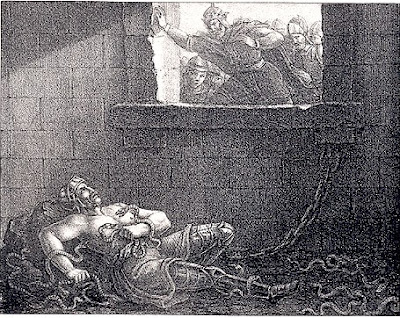Sunday, January 29, 2017
Wednesday, January 25, 2017
The Great Heathen Army (Part 1): Fall of Northumbria
It
was an army of Vikings with the objective to avenge and conquer England.
Because of their known ruthlessness and savagery the English chroniclers
labelled them as the Great Heathen Army. But others labelled it as the Great
Danish Army for most of its warriors came from Denmark. Explore what was the Great
Heathen Army? Why was it formed and invaded England? How did it prevailed? And
how did it created an impact on history?
Monday, January 23, 2017
Friday, January 20, 2017
Tuesday, January 17, 2017
Monday, January 16, 2017
Friday, January 6, 2017
Subscribe to:
Posts (Atom)







